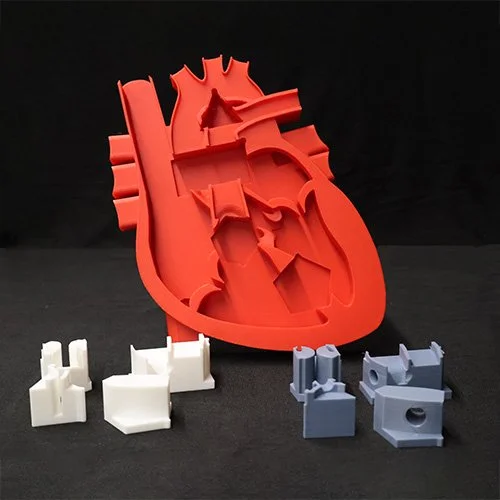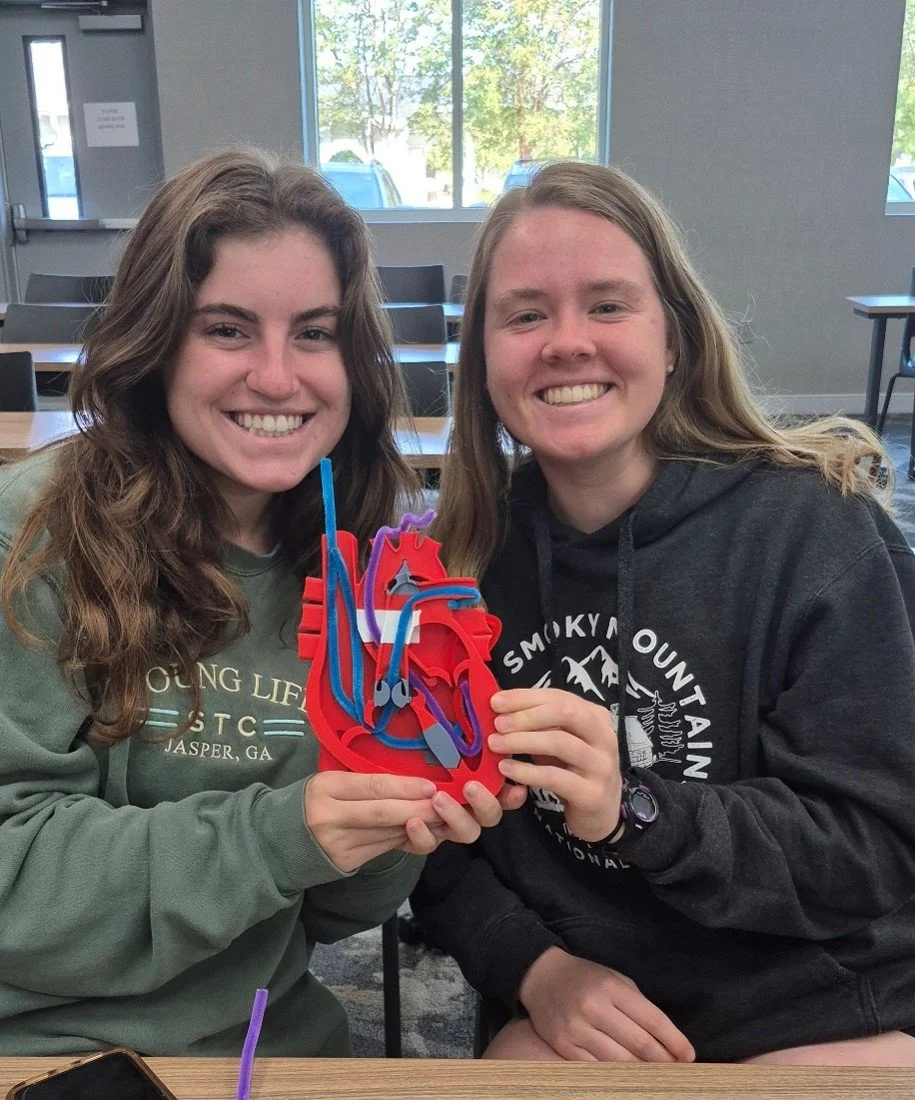CardioEducator™
CardioEducator™ is a 3D-printed, puzzle-like heart model designed to help students understand both fetal and post-natal (typical) circulation and four of the most common congenital heart defects:
Tetralogy of Fallot (TOF)
Atrial septal defect (ASD)
Ventricular septal defect (VSD)
Patent ductus arteriosus (PDA)
Using an interchangeable base and modular pieces, students can “build” the heart, swapping in normal and abnormal structures to visualize how blood flow changes with each defect. Affordable, durable, and reusable, the model was developed as either a classroom learning activity or for independent study.
Early research conducted at the University of South Carolina College of Nursing demonstrated that CardioEducator improved student visualization of complex anatomy and enhanced engagement.
At USC, nursing students use the model while working through realistic case scenarios, tracing blood flow with color-coded pipe cleaners to make a visual connection between anatomical changes and clinical signs and symptoms.
Educational research is ongoing, with results showing increased confidence and deeper understanding among students. The model’s success has expanded beyond its initial classroom, with adoption by USC Upstate, dissemination in Nursing Education Perspectives, and at national nursing education conferences.
CardioEducator™ is evidence-based, faculty-driven innovation that turns a difficult concept into an interactive, memorable learning experience.
CardioEducator™ is now available for purchase by nursing programs, faculty, and simulation labs. Bulk discounts available. Contact us to request pricing or place an order.
University of South Carolina students using CardioEducator™.


